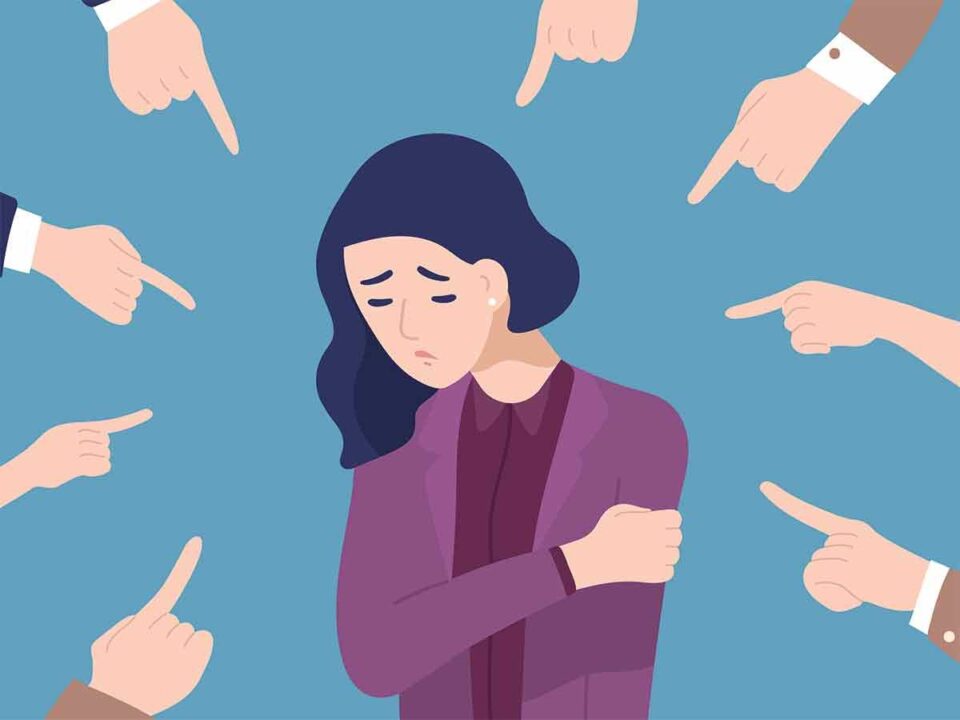Anxiety can be triggered by situations, events, or actions that lead to any amount of worry or fear. Once an individual who suffers from anxiety has any amount of fear or worry, it can be a slippery slope leading to worse anxiety symptoms. This is known as an anxiety spiral or catastrophic thinking. Because of this, it is important to be able to identify and manage triggers for your anxiety.
In addition, a therapist can help you learn to cope by helping you work on your though patterns. Some therapists use art therapy for stress relief and other therapeutic reasons. Learn more about art therapy here.
Anxiety Triggers
Anxiety triggers can vary depending on the individual who suffers from an anxiety disorder. Some triggers are internal factors while others are external.
Caffeine consumption often triggers anxiety or makes the symptoms of anxiety worse. To identify whether this is a trigger for you, try decaffeinated coffee for a couple days and see if you have an improvement in your anxiety symptoms.
Some health conditions can also be triggers for anxiety. A diagnosis that is distressing or stressful can trigger anxiety or worsen the symptoms. One may to help with this is to be proactive. Talk to your doctor or therapist to learn how to manage your symptoms and emotions surrounding your diagnosis.
Medications can trigger anxiety as well. This is especially true of stimulant medicines. Some hormonal birth control medications can also trigger or worsen symptoms of anxiety.
Worries about debt, financial savings, or your financial comfort or future can be stressful and trigger anxiety. Even receiving an unexpected bill can be a major trigger for some people. It may help you to have a financial advisor so that you have a companion and trust in someone.
Typical routine stressors can be triggers for anxiety. Even if each little thing does not make your anxiety severe, they add up throughout the day and can cause worsened anxiety by the time you go to bed. This can lead to missed sleep which can also worsen anxiety. A therapist can often help you learn to identify these stressors and manage them in a healthy way.
Conflict is a major trigger for some people. Problems in a relationship, arguments, disagreements, or criticism can worsen symptoms of anxiety. If this is a common trigger for you, then you may benefit from learning healthy conflict resolution strategies. A therapist may also help you manage the emotions that come with these types of situations.
Social situations often cause undo stress on people who suffer from anxiety. Social anxiety is common, but social interaction is also important. A therapist can help you manage your social anxiety and learn to attend social events without worry or fear.
Identify Your Triggers
Individuals who suffer from anxiety can benefit from identifying their triggers. Triggers can be personal and vary for each unique person, but there are ways that can help you identify your unique triggers. This can, in turn, help you avoid or manage those triggers.
One way to identify triggers is to keep a journal. This can help you keep track of your thoughts, feelings, and behaviors. You can write about the things that occurred and then look back for similarities or common situations. It may also help you to write or think about previous events that caused panic attacks or worsened anxiety. The things that triggered your anxiety in the past may be similar to, or even the same as, things that trigger your anxiety now. There may also be a similar theme between situations or events such as finances, relationships, or change.
It can also help to talk to someone because they can provide insight and objective opinions about you, your situation, and your experiences. This can be a friend, family member, or a therapist as long as you feel comfortable talking to them.
Coping with Anxiety Triggers
Coping techniques can help you manage your anxiety. This is especially true if you are able to identify anxiety triggers. Some people like to schedule a time to worry each day. This can help them manage their anxiety when they need to be productive or relaxed.
Deep breathing, meditation, yoga, and mindfulness are also common techniques for managing stress and anxiety. It may feel awkward at first, but just 10 minutes a day may help you ease your symptoms related to anxiety. Regular exercise may also help your stress levels and, in turn, reduce your anxiety.
If caffeine worsens or triggers your anxiety, you may want to reduce or eliminate your caffeine consumption. This may also help you get better sleep. Improving sleep is an easy way to be healthier and to reduce your anxiety levels.
Some people do best when they avoid unnecessary change. By keeping to a scheduled routine, you can eliminate triggers that revolve around changes. However, be careful and prepared because change is inevitable.
Conclusion
Anxiety triggers are personal and unique for every individual. However, there are some common triggers including caffeine, medication, financial stress, and conflict. Think about the times that you suffer worsened or triggered anxiety and try to connect the dots. It may also help you to keep a journal. Identifying your own triggers is an important step in your management of anxiety.
Marie Miguel Biography
Marie Miguel has been a writing and research expert for nearly a decade, covering a variety of health- related topics. Currently, she is contributing to the expansion and growth of a free online mental health resource with BetterHelp.com. With an interest and dedication to addressing stigmas associated with mental health, she continues to specifically target subjects related to anxiety and depression.

